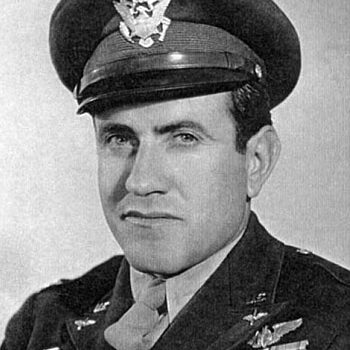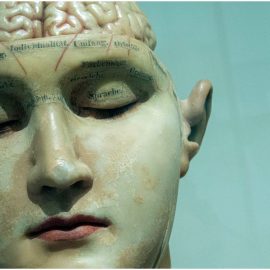

This article is an excerpt from the Shortform summary of "Unbroken" by Laura Hillenbrand. Shortform has the world's best summaries of books you should be reading.
Like this article? Sign up for a free trial here .
Who is Louis Zamperini? What did he do, and why was Unbroken written about him?
Louis Zamperini was an Olympic runner from California who spent much of the war years in a Japanese POW camp. The question “who is Louis Zamperini” is complicated. He was many things, including a motivational speaker. Throughout his life, Zamperini’s resilience and belief in the human spirit defined him and allowed him to thrive. So, who is Louis Zamperini? Keep reading to find out.
Louis Zamperini
The story of “who is Louis Zamperini?” is quite remarkable. Louie Zamperini was one of the brightest prospects for the 1940 Olympics in track and field. But when WWII started, his life would take a much different path. The story of Louie’s struggles as a young loner, a rising star, a Pacific POW, and a man trying to reclaim his life after years of torment is as unbelievable as it is inspiring. Through Louie’s tale, the depths of the human soul and will to survive are examined. As Louie spirals out of control because of trauma and becomes obsessed with a plot to kill the man who tortured him, he learns that a man is not defined by his history, but rather by the manner in which he seeks a future. Unbroken reaches into the heart of terror and shines a light on what it means to triumph.
From Terror to Triumph
As a young boy, Louie was known as the town terror in Torrance, California, a neighborhood south of Los Angeles, where his family moved in 1919 when he was two. Louie was a notorious thief and prankster and had trouble fitting in at school. He was often the victim of bullying, but he never cowered in the face of danger.
As a teenager, Louie was restless and sick of living a life of rules and restrictions. When his antics got him suspended from school, he was banned from participating in athletic activities. His older brother, Pete, a model student and athlete, knew Louie needed direction. He convinced the principal to let him join the track team and took responsibility for Louie’s training. Still, he couldn’t get Louie to engage. Louie left home at the age of sixteen.
After only a few days on the road, Louie realized he was wasting his life. He returned home, agreed to let Pete train him, and found he had a tremendous talent for running. Louie started competing in the mile and two-mile races, quickly making a name for himself with his impressive speed. Soon, he was beating college runners as a high school senior, and he received a scholarship to run at USC. Now, when people asked “who is Louis Zamperini?” they were referring to a track phenom.
Louie had set his sights on another target. He wanted to run in the 1936 Olympic Games in Berlin. All of Louie’s training was focused on getting him to the Olympics, and his dream became a reality when he came in second at the trials. Although Louie didn’t medal at the games, he drew attention by clocking the fastest final lap in history up to that point. Even Hitler was impressed.
After being captured, the two men were interrogated and taken to a secret POW camp called Ofuna. There, they were separated, and each experienced abuse and starvation that was worse than what they’d known on the raft. The prison guards were unusually cruel and sadistic, and men were often beaten unconscious. Louie spent a year at this camp before he was transferred to Omori.
At Omori, Louie met a man who made it his life’s mission to break Louie down. His name was Mitsuhiro Watanabe, but the prisoners called him “the Bird.” There were hundreds of POWs at Omori, but the Bird singled Louie out as the “number one prisoner.” The Bird was from a privileged background but hadn’t made officer in the Japanese military. His resentment made him loathe men of higher ranks and anyone who’d been successful in civilian life. As an officer and former Olympian, Louie was the perfect target.
Terrorized
Over the next year, at Omori and another camp named Naoetsu, the Bird beat Louie on a daily basis. He’d hunt Louie down in the sea of POWs and beat him with sticks, punch him until he was unconscious, and threaten to kill him. He used a heavy belt buckle to whip Louie in the side of the head, and Louie went deaf in one ear for a few weeks.
Under the oppressive hand of the Bird, Louie began to disintegrate emotionally and psychologically. He dreamt of the Bird attacking him in his sleep, dreams that often ended with Louie trying to strangle his abuser. Louie swore he would never let the Bird see him afraid, but the constant abuse was chipping away at his dignity. Starving to death, sick, and desperate, Louie often had to beg the very man who tormented him for help.
Louie was offered an out from his hell one day when radio producers from Tokyo wanted him to deliver a propaganda broadcast. Louie had been officially declared dead in the United States, and the Japanese wanted to use Louie to embarrass the American government. If he complied, he could live in a furnished room and eat large lavish meals. Louie refused. He wouldn’t become a pawn in the enemy’s game.
The abuse continued up until a few days before the war’s end. It was 1945, and both Germany and Japan had surrendered. The Americans brought supplies to the POW camps and eventually liberated them. Louie just made it. He’d developed a fatal vitamin deficiency that was on the verge of killing him days before they were saved. Louie and other POWs looked for the Bird, but he’d already escaped.
Becoming Human
Who is Louis Zamperini? The public wanted to know. The nation was captivated by the story of Louie’s story of survival. He became an instant celebrity and gave many speeches about his experiences. But inside, Louie suffered from crippling PTSD. He experienced night terrors, flashbacks, and aggressive behavior. Every night he dreamed that the Bird was abusing him, and every night he dreamed of strangling him.
When Louie first came home, he met and married a young woman named Cynthia Applewhite. He loved her from the moment he saw her and wanted to give her a good life. But with his running career over because of injuries sustained in the prison camp and no job prospects, he began to falter. Louie drank heavily to keep his demons away and became obsessed with a revenge plot to travel to Japan and murder the Bird.
For four years, Louie spun out of control. Even the birth of his daughter couldn’t stop his drinking or murderous thoughts. It wasn’t until he went to a Billy Graham sermon that he was able to find relief. At the sermon, he was reminded of the promise he made to God on the raft. Louie realized he hadn’t fulfilled his end of the deal. He quit drinking and smoking and started preaching the word of God, telling his story around the world, now through the lens of gratitude and faith.
Happily Ever After
Louie dedicated the rest of his life to helping others in need. He continued to speak at events, opened a therapeutic retreat for troubled teens, and volunteered with seniors. He traveled back to Japan and was able to find forgiveness for those who tormented him. But he never saw the Bird again.
After leaving the camp, the Bird went on the run from authorities for seven years. When the hunt for war criminals ended, he came out of hiding and became a successful businessman in Tokyo. In the late 1990s, Watanabe gave an interview, in which he waffled between remorse and self-righteousness. He maintained that he was just doing his job and was a victim of wartime hysteria. He was offered an opportunity to meet with Louie, both close to 80 years old, but he declined. He died in 2003.
For Louie, life moved on, and he never again lost his zeal for living. He started running again and continued to through his sixties. In his 70s, he took up skateboarding. In his 90s, he was still skiing and climbing trees. He received numerous awards and honors, and his childhood home was declared a historic monument. Louie carried the torch at five Olympic opening ceremonies, including the 1998 Winter Games in Japan. As he carried the torch past the location of his former prison camp in Naoetsu, Louie felt nothing but peace and love for life.
As you can see, the question “who is Louis Zamperini” is complicated. In many ways, he was a normal person, whose determination allowed him to survive extraordinary circumstances? So, who is Louis Zamperini? Now you know.

———End of Preview———
Like what you just read? Read the rest of the world's best summary of Laura Hillenbrand's "Unbroken" at Shortform .
Here's what you'll find in our full Unbroken summary :
- How Louie Zamperini was on track to become an Olympic athlete until the war started
- The unbelievable story of his capture as a prisoner of war
- The ultimate fate of Louie and his captors






